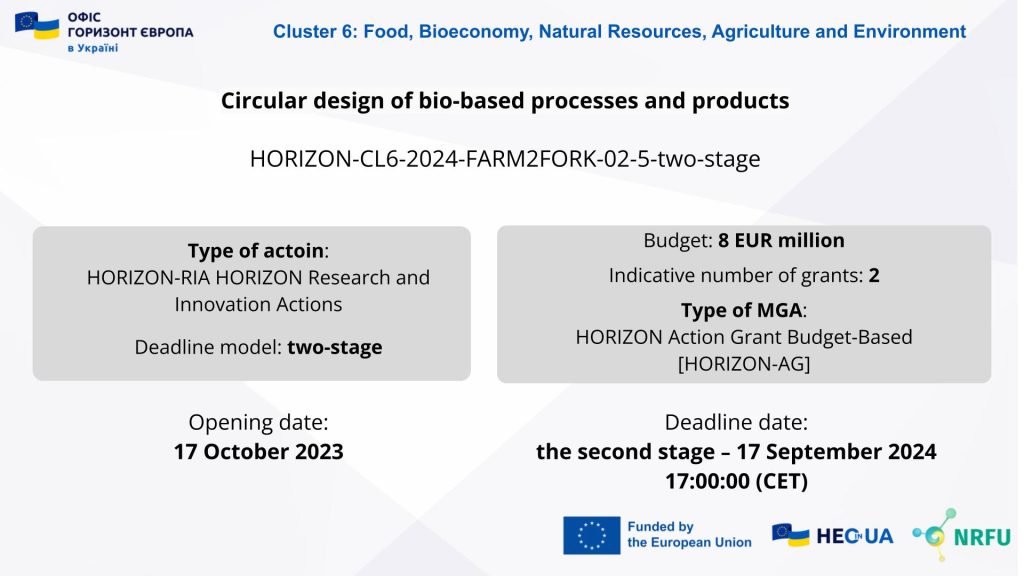Circular design of bio-based processes and products (HORIZON-CL6-2024-CircBio-02-5-two-stage)
Horizon Europe Office in Ukraine continues to inform that the second stage of calls in Cluster 6: Food, Bioeconomy, Natural Resources, Agriculture and Environment within Pillar II Global Challenges and European Industrial Competitiveness are available. Deadline for applications in the 2nd stage – September 17, 2024.
Circular design of bio-based processes and products (HORIZON-CL6-2024-CircBio-02-5-two-stage).
Successful proposals will enable the bio-based industries in the Union, including SMEs, to contribute to the enhancement of European industrial sustainability, competitiveness and resource independence and to the deployment of innovative and sustainable value-chains in the bio-based sectors as a prerequisite and driver of future solutions for a circular economy and the bioeconomy transitions. Projects results will contribute to deliver bio-based solutions with reduced environmental impacts on soil, water, and air quality, biodiversity and climate, in line with the EGD objectives, the EU circular economy and the EU zero pollution action plans, the bioeconomy strategy and the communication on sustainable carbon cycles.
Projects results are expected to contribute to all of the following expected outcomes:
- Circular design of bio-based processes and products: increasing resources and energy efficiency of bio-based technologies, decreasing their environmental impacts on soil, water, and air quality, biodiversity and climate, improving durability and suitability of bio-based products to be safely re-used and re-manufactured, allowing for high-quality recycling, increasing the safe recycled content in new products;
- Product information systems enabling the circularity, safety and environmental sustainability of the bio-based manufacturing sectors and of the use of products at consumers’ level.
The bio-based processes and products within the scope of this topic do not include food, feed, biofuels, bioenergy and cultural and recreation sectors. The establishment of safe, resilient, competitive and equitable production and consumption systems with reduced environmental impacts on soil, water, and air quality, biodiversity and climate, is part of the objectives of the EU circular economy.
